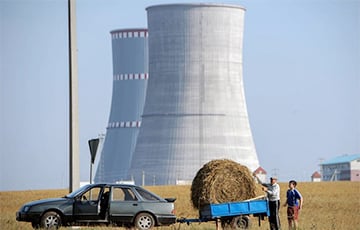NATO Reckons Belarusian NPP As Russia’s Tool In Hybrid War
- 15.10.2019, 15:23
- 4,042

The BelNPP poses a threat to both Belarus itself and neighboring countries, the report says.
The NATO Strategic Communications Center, which is located in Riga, Latvia, published a study on October 10 titled “Nuclear Energy and Current Security in the Age of Hybrid Threats,” Radio Svaboda reports.
The report considers three nuclear power plants that operate in one way or another with the help of Russian companiesб and calculates the possible threat from their activities - these are Paks NPP in Hungary, Hanhikivi in Finland (where the reactor was also supplied by Rosatom) and the Belarusian NPP in Astravets.
The conclusions say that the BelNPP poses a threat to both Belarus itself and the neighboring countries. Basically, it carries threats because Russia will be able to increase its influence in Belarus and use the country as a “proxy actor” in a hybrid war with the Western countries.
Since the entire NPP is serviced and protected by the Russian personnel, the report assumes that this gives Russia a strategic advantage in the region, which the country can use in a hybrid war.
The following paragraphs supplement the conclusion of the report:
• We need increased international awareness of the activities of the Belarusian NPP, and its monitoring by organizations such as the IAEA. Frequent visits by NATO representatives may also be needed. Efforts must be made to increase openness and cooperation between Belarus, neighboring countries, the European Union and NATO.
• Separation from the BRELL network (the power network of Belarus, Russia, Estonia, Latvia and Lithuania) would allow the Baltic countries to synchronize with a larger (in size - approx.), more stable, ideologically and politically more suitable electric network. This would mitigate the risks associated with dependence on both Russian nuclear power plants and network balancing services.
• The presence of the military in the region for the protection of BelNPP poses a potential threat. Lithuania will eventually become less secure than it is today. This aspect should be taken into account when planning both the defense budget of Lithuania itself and NATO as a whole.
• The situation with the construction of the Astravets NPP, when viewed through the prism of a hybrid threat, makes it possible to observe how action in one place or country can influence and weaken a completely different country. Therefore, more research is needed, and more attention should be paid to this aspect.








